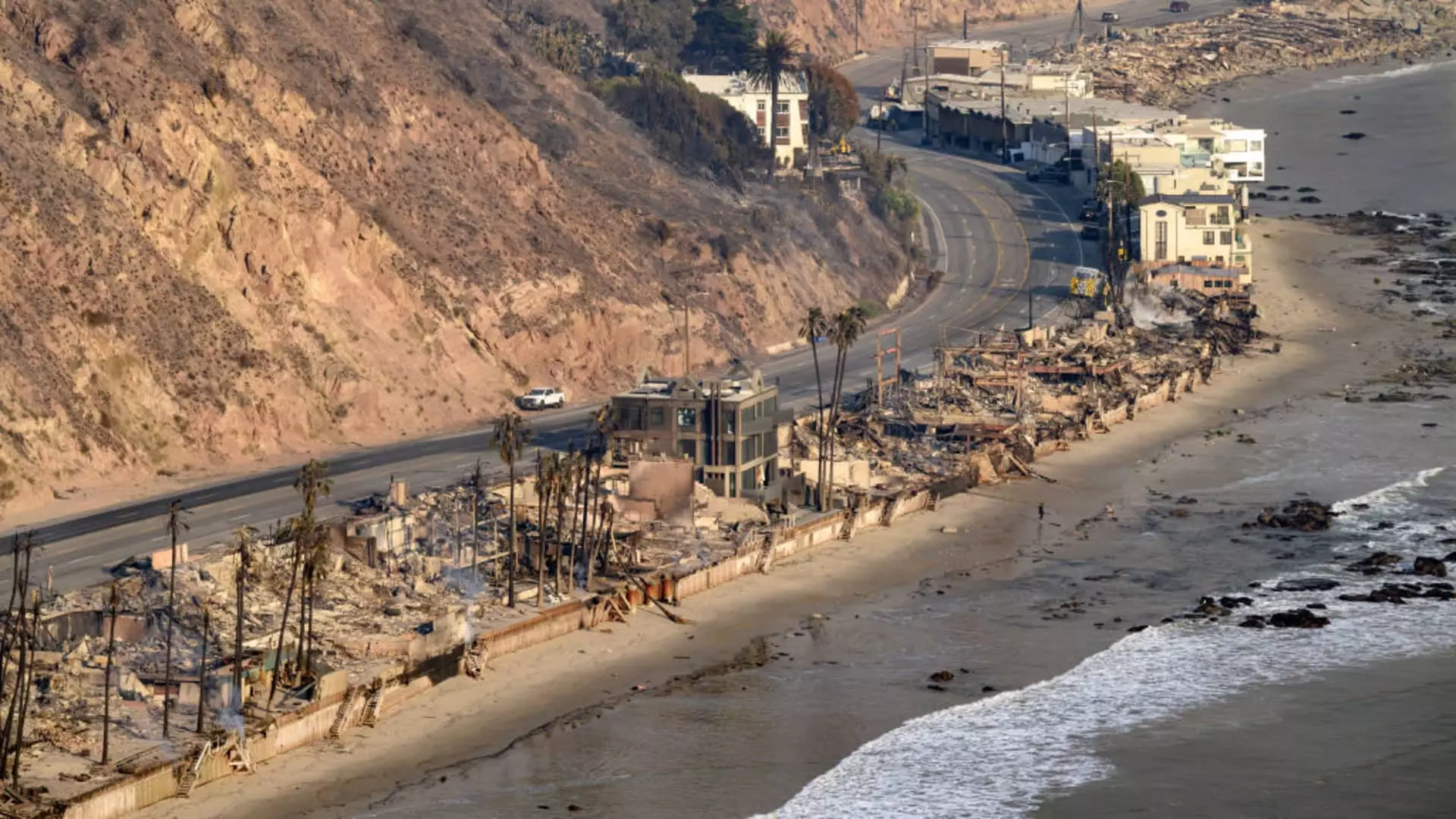The ongoing wildfires in Los Angeles have created a precarious situation for residents and travelers alike, prompting several airlines to take action. Major carriers, including American Airlines, United Airlines, Southwest Airlines, and JetBlue Airways, have introduced travel waivers to provide some relief to those booked to fly into and from the area. The scale of the destruction is significant, with over 10,000 homes and structures reported damaged or destroyed. This grim backdrop raises questions about the long-term implications for air travel when natural disasters disrupt urban life.
Despite the chaos on the ground, flight operations at Los Angeles’s major airports have reportedly remained intact, according to data from FlightAware. However, power outages and water shortages hamper the day-to-day activities of many local residents. This highlights a critical aspect—the differentiation between operational airline service and the broader, more severe humanitarian crises impacting the region. The situation underscores that while airlines may manage logistics effectively, the ramifications of such widespread destruction cannot be overlooked.
In the wake of the wildfires, American Airlines has announced that travelers with bookings to or from major airports, including Hollywood Burbank and Los Angeles International Airport, can change their flights without incurring change fees or fare differentials until January 20. Southwest Airlines has similarly indicated that travelers may adjust their plans without penalty within a 14-day period following their original travel dates. These measures illustrate a growing trend among airlines—providing flexibility to customers during crises.
However, the question arises: Are these waivers enough to truly mitigate the anxiety and inconvenience experienced by travelers in these turbulent times? While such allowances are well-intentioned, they do not address the emotional toll faced by individuals who may have lost homes or loved ones. Moreover, adjusting flight plans doesn’t guarantee passengers will find available seats on later flights, especially as demand for those seats may surge unexpectedly.
The financial impact of the wildfires extends beyond immediate operational challenges. According to Delta Air Lines’ president, Glen Hauenstein, the airline has observed a decline in sales to Los Angeles, one of its busiest hubs, but not an overarching rise in cancellations. While he indicated that strong demand exists across Delta’s network, the implication of declining sales centered around one region cannot be overlooked. This disconnect raises pertinent questions: How prepared are airlines to weather the financial murkiness of such unforeseen events?
Crafting contingency plans for natural disasters must become a key strategic priority for airlines. As Hauenstein noted, historical trends often reveal an uptick in travel demand following crises due to rebuilding efforts. Therefore, airlines might need to recalibrate their business models to anticipate shifting patterns in travel behavior and consumer sentiment post-disaster.
In crisis situations like these wildfires, it is crucial to maintain a human-centric approach. Airlines should not only focus on managing flights and maintaining operations but also consider how they can aid affected communities. This may include partnerships with local organizations to provide support or even offering services for evacuations if needed.
The blend of economic viability and community support could redefine how airlines navigate crises. Understanding the complex relationship between natural disasters and travel behavior will enable them to respond more effectively both operationally and socially.
As the wildfires persist and the situation unfolds, it is clear that the implications for airlines are multifaceted. Flexibility in travel plans is a step in the right direction, but it is essential for airlines to acknowledge the broader context of the human experience during times of crisis. By adopting both operational agility and community-oriented strategies, airlines can play a constructive role in the recovery landscape while securing their long-term sustainability in an unpredictable world. Through careful consideration and responsiveness, the airline industry can weather the storms—both literal and metaphorical—that disrupt their services and the lives of their customers.

